Panel Discussion
Climate vs. Weather: How Do We Sustainably Make Software More Secure?
#1about 4 minutes
The conflict between initial velocity and long-term quality
Business pressures like deadlines and budgets often prioritize rapid proof-of-concept development over establishing sustainable software quality and security from the start.
#2about 4 minutes
Addressing the security education gap for developers
Integrating a secure system development lifecycle (SDLC) into university and bootcamp curricula is crucial for changing the industry's culture and embedding security from the ground up.
#3about 6 minutes
Why development teams need multidisciplinary specialists
Instead of expecting every developer to master security, performance, and usability, teams should adopt a model with specialists like security champions.
#4about 5 minutes
Expanding security awareness beyond the development team
Creating a robust security culture requires educating everyone from young people on data privacy to management on IT fundamentals, reinforced by practices like phishing simulations.
#5about 4 minutes
Exploring the need for regulation in software development
The panel discusses whether software engineering needs formal regulations, similar to civil engineering, to improve safety and why the intangible nature of data breaches makes this challenging.
#6about 8 minutes
How to begin implementing security in a new project
Security should start with requirements and design, using accessible techniques like simplified threat modeling and attack trees to identify potential risks early in the development lifecycle.
#7about 11 minutes
Using security tooling effectively without slowing developers
Effective tooling involves a mix of static analysis (SAST), red team tools, and unit tests, but success depends on managing false positives and matching the tool's rigor to the application's risk profile.
#8about 6 minutes
Panelists share their wishes for a more secure future
Panelists wish for improvements ranging from better communication and fewer dependencies to a perfect body of security knowledge and smarter IDE integrations.
#9about 4 minutes
What panelists love about working in cybersecurity
The panelists conclude by sharing their passion for the field, highlighting the noble goal of protecting people, the constant learning, and collaborative problem-solving.
Related jobs
Jobs that call for the skills explored in this talk.
Information Security Officer - Part-time (w/m/d)
aedifion GmbH
Köln, Germany
€30-45K
Intermediate
Network Security
Security Architecture
+1
Cloud Engineer (m/w/d)
VECTOR Informatik
Stuttgart, Germany
Intermediate
Senior
DevOps
Cloud (AWS/Google/Azure)
Matching moments
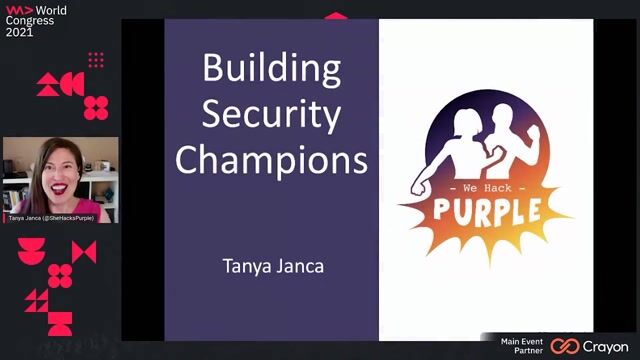
00:03 MIN
Why security teams must scale through developer collaboration
Building Security Champions
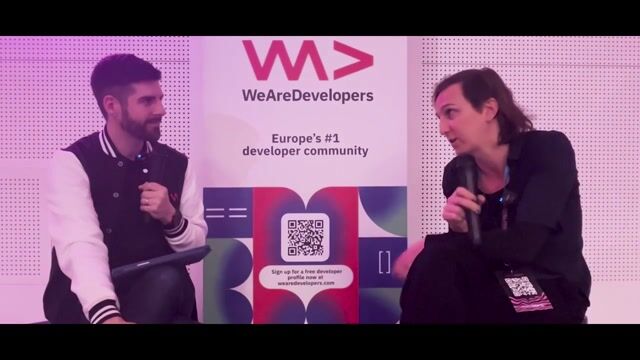
07:31 MIN
Balancing developer and stakeholder security priorities
What The Hack is Web App Sec?
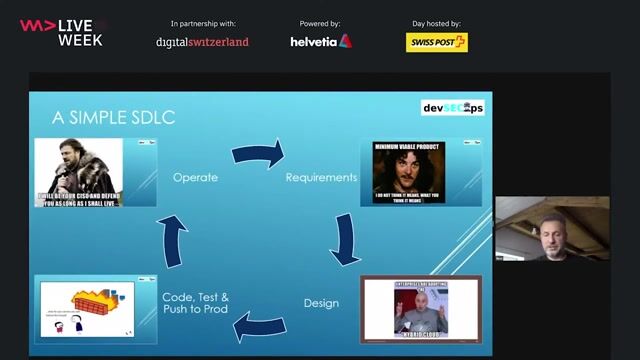
28:05 MIN
A developer's responsibility to build secure software
You can’t hack what you can’t see
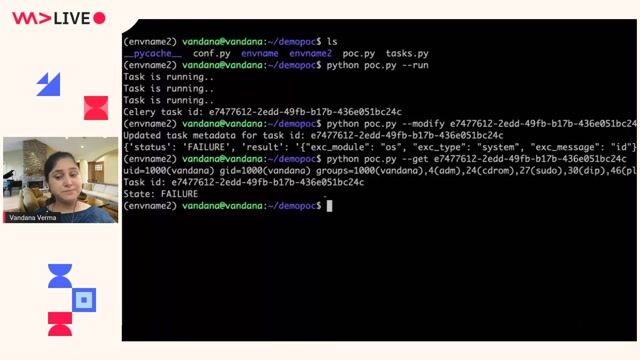
28:01 MIN
Fostering a developer-first security culture
Walking into the era of Supply Chain Risks
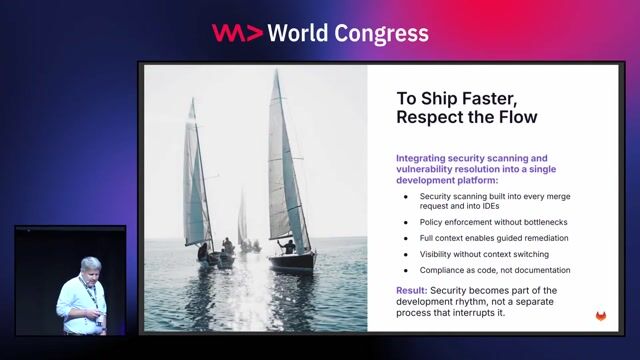
15:05 MIN
Scaling AppSec teams by empowering developers
Why Security-First Development Helps You Ship Better Software Faster
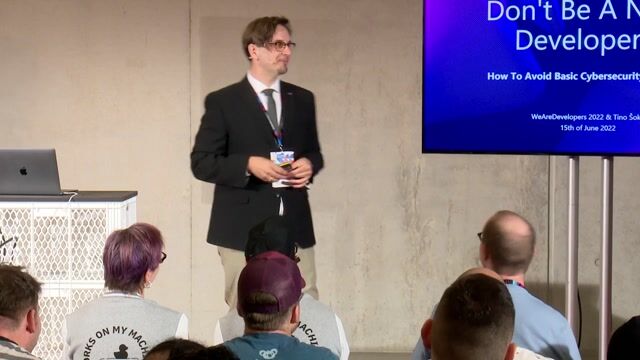
00:28 MIN
Why developers make basic cybersecurity mistakes
Don't Be A Naive Developer: How To Avoid Basic Cybersecurity Mistakes
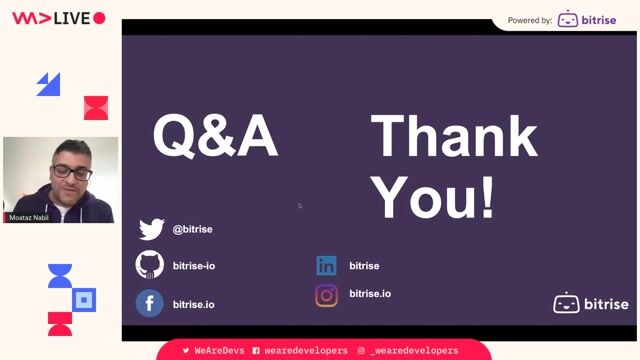
29:56 MIN
Q&A on speed, team adoption, and common mistakes
DevSecOps: Injecting Security into Mobile CI/CD Pipelines
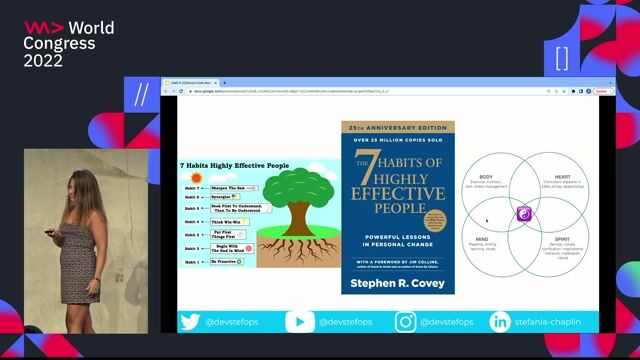
15:40 MIN
Key strategies for building a secure code culture
Secure Code Superstars: Empowering Developers and Surpassing Security Challenges Together
Featured Partners
Related Videos
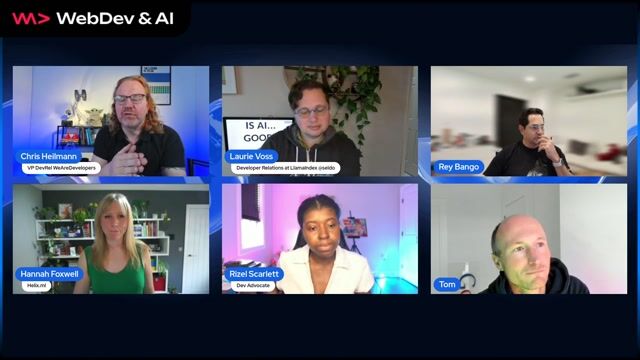 47:35
47:35Panel discussion: Developing in an AI world - are we all demoted to reviewers? WeAreDevelopers WebDev & AI Day March2025
Laurie Voss, Rey Bango, Hannah Foxwell, Rizel Scarlett & Thomas Steiner
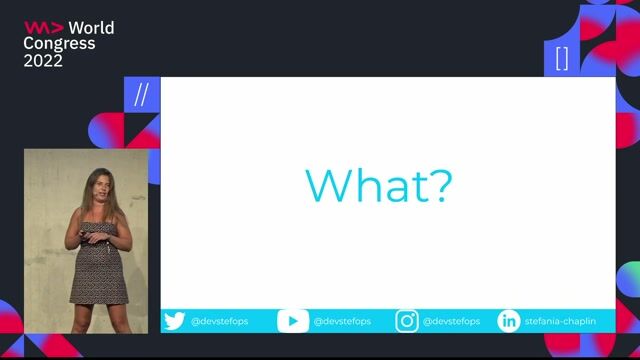 23:34
23:34Secure Code Superstars: Empowering Developers and Surpassing Security Challenges Together
Stefania Chaplin
 21:53
21:53Simple Steps to Kill DevSec without Giving Up on Security
Isaac Evans
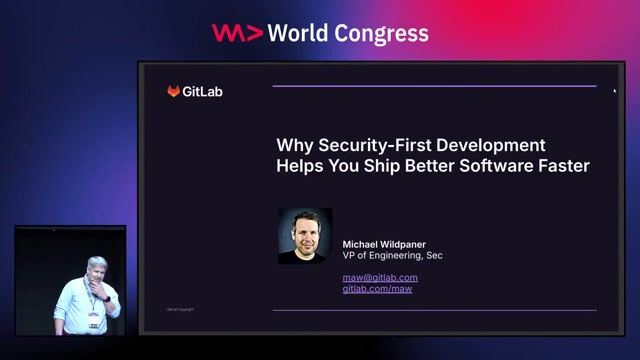 22:18
22:18Why Security-First Development Helps You Ship Better Software Faster
Michael Wildpaner
 33:20
33:20DevSecOps: Security in DevOps
Aarno Aukia
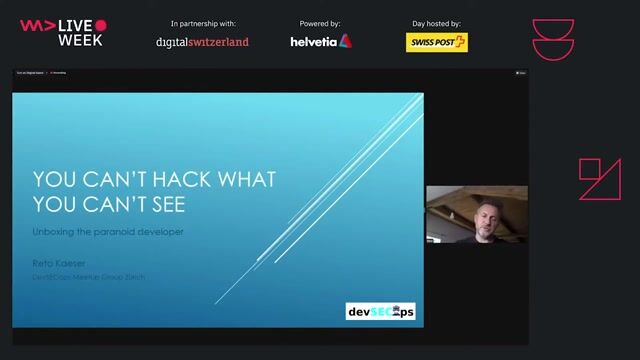 29:34
29:34You can’t hack what you can’t see
Reto Kaeser
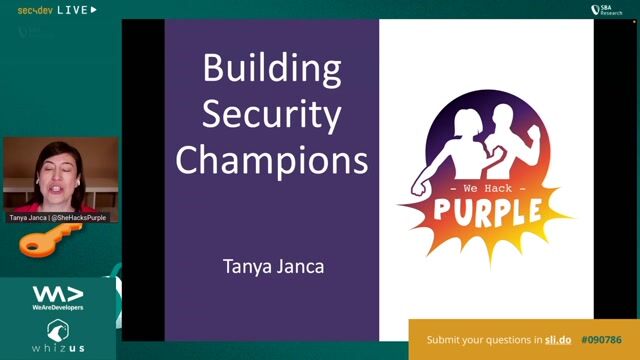 42:40
42:40Building Security Champions
Tanya Janca
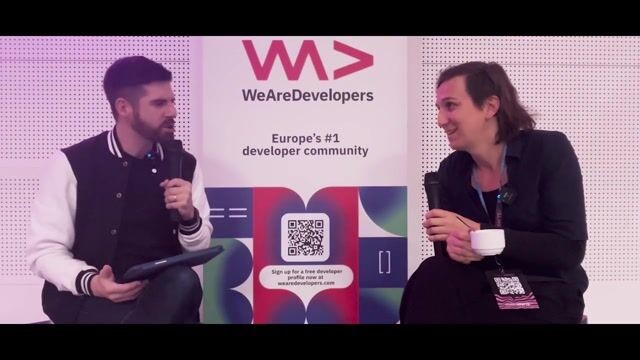 24:01
24:01What The Hack is Web App Sec?
Jackie
Related Articles
View all articles



From learning to earning
Jobs that call for the skills explored in this talk.


Full Stack Engineer
Climax.eco
Rotterdam, Netherlands
€70-100K
Senior
TypeScript
PostgreSQL
Cloud (AWS/Google/Azure)

Quality and Security by Design Engineer (m/w/d)
AKDB Anstalt für kommunale Datenverarbeitung in Bayern
München, Germany
Intermediate
Senior
IT Security
Automated Testing


Software Engineer - SDLC Security - Public Artifacts
Datadog
Paris, France
DevOps
Python
Kubernetes
Configuration Management

DevOps Security Engineer with Golang Development Focus
SAP AG
Sankt Leon-Rot, Germany
Junior
Go
Azure
DevOps
Puppet
Docker
+6

Senior Security Engineer (DevSecOps & Automation)
On Ag
Zürich, Switzerland
Senior
API
Azure
Python
Terraform
TypeScript
+5


Application Security Consultants - Security by Design
Accenture
Municipality of Madrid, Spain
Scrum
DevOps
Agile Methodologies